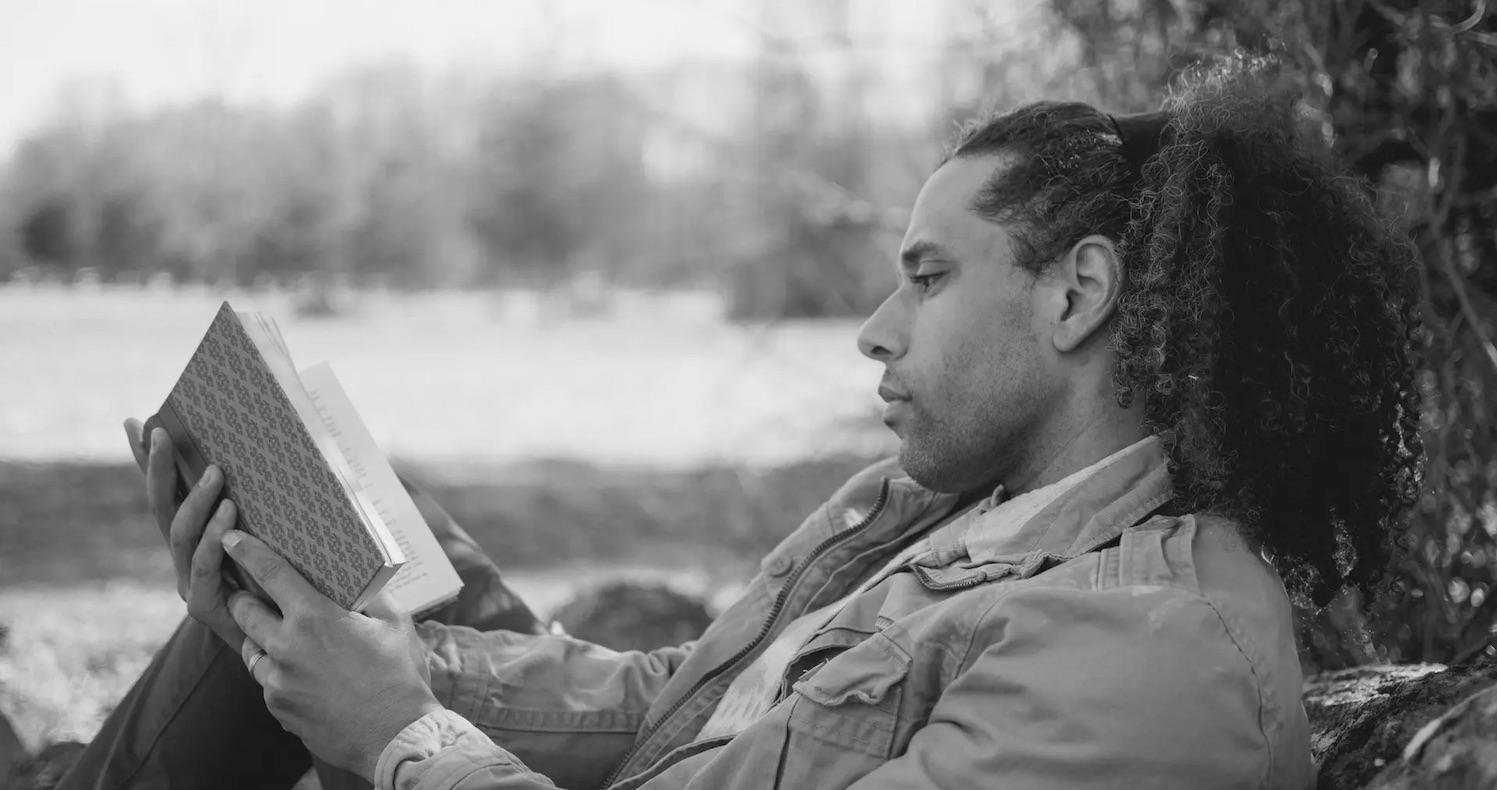
Ryan Parker brings golden noise to the world of education
Why teaching looks, sounds and feels like establishing and maintaining justice for all.
Author: Ryan Parker

Why teaching looks, sounds and feels like establishing and maintaining justice for all.
Author: Ryan Parker
Wait! Before you jump into this article, please consider the following:
I begin this article by boldly saying “NO!” No to cold, quiet rows in classrooms. No to silent, perfectly straight lines of students in the hallway. No to sage-on-the-stage-induced, boring, irrelevant lectures and teacher rules being dictated.
No to worksheets and lessons with no cultural relevance.
No to teacher threats, ejections of students out of classrooms, teachers verbally humiliating students, and other punitive measures that contribute to harms committed to kids and aversions toward learning. No to the notion of an achievement gap. No to ignoring the legacy of inequities embedded in our current school system. No to closed mindsets, blank walls, blank stares—and no to standardization choking the souls of students. N.O. No!
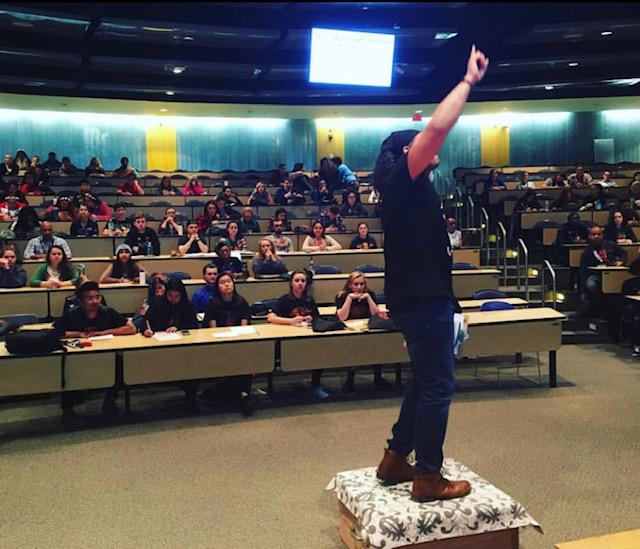
My journey to becoming an educator derives from a strong desire to do absolutely everything differently from what my teachers had done when I was a student. Twenty-three years ago, I was a sophomore in high school. I distinctly remember entering my 10th grade English classroom on the first day, only to find a scowl-faced teacher at the front of the room pointing to a large sign above her head that read in all caps: SILENCE IS GOLDEN.
This sign terrified me and would become a catalyst in motivating my vow to bring golden noise into the world of education.
So, I guess when I really think about it, my experience as a Connecticut teacher was born out of my experience as a Connecticut student—and a deep yearning to change the game!
Fast-forward 23 years!
A lineup of hip hop instrumentals seep into an eighth grade English classroom and become the learning soundtrack. Picture for a moment clusters of youth frantically discussing the parallels between the civil rights movement of the 60s with the birth of today’s Black Lives Matter movement— their great significance to one another.
Beyond discussion, students scroll through research on their phones, digesting text and using it to support lyrical creations they cooperatively construct for the purpose of supporting claims that illustrate historical and modern-day civil rights acts—in conjunction with steps we can take to initiate social justice change in our own community.
Silence and stillness are not invited to today’s lesson or learning activities; golden noise is. Loudness reflecting the creative process, combined with academic purpose and the opportunity to authentically showcase knowledge gained, is the norm.
The new tradition is to break tradition and engage in an academics that looks, sounds and feels like hip hop. Imagine the culmination. Classroom becomes cypher, students in circle formation stepping to stages showcasing their synthesis. Some confident and strutting, others nervous but supported both by the safe-space, family vibe we took careful time to establish—and the audience of listeners and lifters.
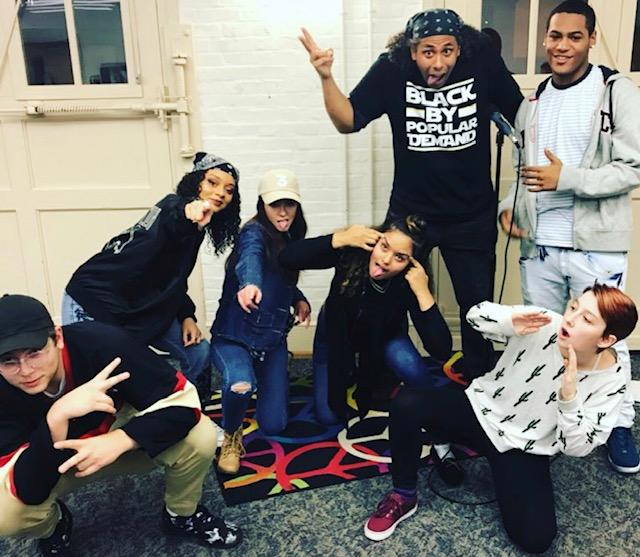
As students spit their genius into mics, affirmations burst from onlookers’ lips. Applause pounds the ceiling and floor, spilling into the hallway, grabbing the attention of random students who think, “Dang! I wish I was in that classroom!” Traditional teachers and admin think, “Is there any learning going on in that classroom?” This has been my teaching experience.
The predominance of an imparted education system that goes against the grain of what youth actually need—especially black and brown youth—has left us in the wake of limited, and at many times, false indicators of academic success.
The perpetual investment in these limited and false indicators, and the confinement imposed by biased tradition that has been normalized and applied since the start of the Eurocentric education system, has contributed to denying youth the ability to demonstrate and showcase what it is that they know, have learned and love about their learning in ways that are authentic and culturally relevant.
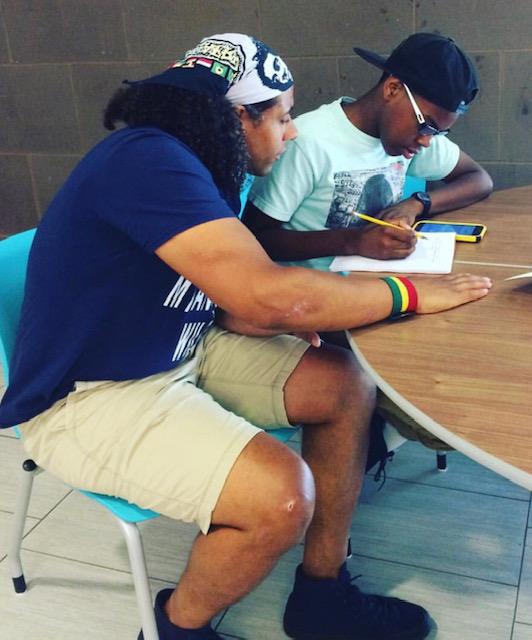
Furthermore, traditional American education has operated and continues to operate with extremely limited involvement of youth voice and choice, and is muddied with the legacy of oppression not only within in the system design but also within its function.
One of the greatest beauties I’ve experienced as an educator has been having the ability to directly impact the learning experiences of the youth I am privileged to teach, with a focus on shifting the educational paradigm to the extent that it empowers my students.
This is best illustrated in a line of one of my hip hop pieces,
Every time I step inside my classroom, it’s a civil rights act,
fight oppression by teaching lessons to students that give them wisdom to fight back,
the youth be the true hope, forget future they’re the leaders of NOW,
and I suggest adults take notes!
We’re sick and tired of these institutions bleeding us out!
Public school is representative of the society around it; each is a tiny microcosm.
Within my experience as an educator, I’ve been able to take part in the meaningful experience of affecting positive societal change in a way that’s unattainable in any other field.
Being an educator provides the responsibility and opportunity to engage in activism for the purpose of uplifting youth and influencing a system by establishing educational justice for all. While one of the most difficult parts of being an educator is teaching in a system I don’t fully believe in, each day I get to walk into a classroom and have the magnificent honor of interacting with the current and future leaders of this world working towards making the education system what it should be and providing the learning experience they deserve. Within my role as an educator, I get to redefine teaching and be present in a space where I truly make a difference for one of the most marginalized groups in existence: youth!
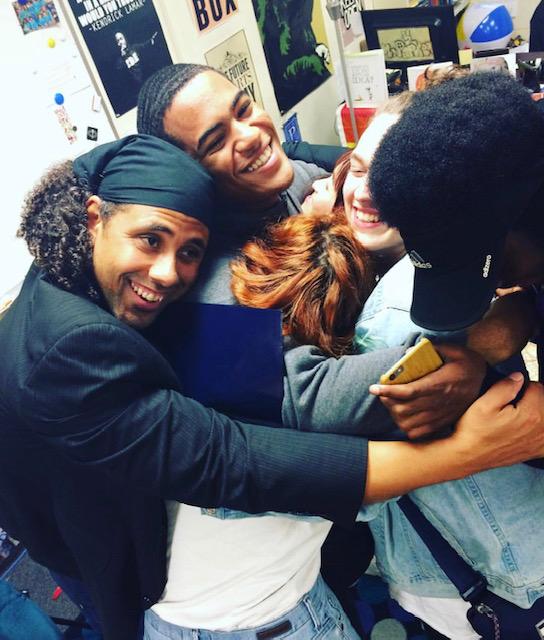
The fundamental foundation of my pedagogy is hip hop, combined with a social justice-infused desire to center and amplify youth voice. Within my classroom, I’ve been able to base the teaching and learning experience on the five elements of hip hop by injecting the culture and methodology of DJing, B-boying/B-girling, MCing, Graffiti and Knowledge into my daily pedagogical practices.
From this foundation, I have worked in partnership with my students to construct beautiful learning communities comprised of powerful youth who display their genius through a lense of performance arts, and are celebrated for exercising and maximizing their authentic selves within the process of their learning and showing what they know.
This has been a gift that is unrepeatable.
I am a part of the two percent of black male educators in America. One of my greatest experiences as a teacher is that I am able to look out into a classroom where students who look like me have the opportunity to see a piece of themselves within a system that has historically harmed them and currently under-represents them.
The simple fact that I get to represent a huge population of my students every day in a leadership position, and perform as a role model and activist for my black and brown youth, is reason enough for me to teach.
The experience I’ve had teaching youth who do not look like me has also been rewarding, especially as it applies to being put in a position where I am able to dispel stereotypes and develop impactful experiences with the diverse body of students and parents I am privileged to engage with.
These human connections and relationships have been the ultimate magic of of being a teacher.
The world of education is imperfect because society is imperfect. Remember, teaching is a civil rights act, and we must try to reach perfection for the children we are lucky to care for. Being a teacher means I get to be an activist, role model, creator, DJ, MC, B-Boy, graffiti artist knowledge influencer and a change agent impacting both the present and the future.
As an educator, I have the great reward of being able to learn just as much from my magical students and their families as they learn from me (probably more).
I also have the honor of connecting and collaborating with families, community members and phenomenal educators near and abroad engaging in the most important and rewarding work in existence: altering oppressive legacy and empowering youth in the process!
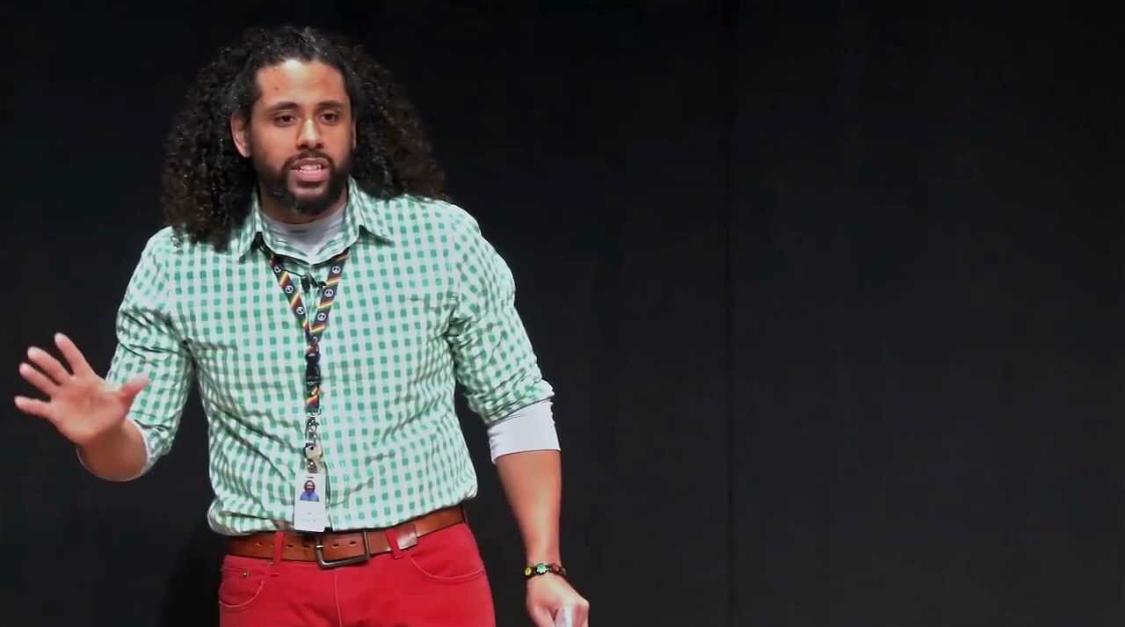
I end this article by boldly saying YES! Yes to beautiful golden noise in classrooms exemplifying the joy of teaching and learning. Yes to teachers who love, listen to and honor their students. Yes to creative and culturally relevant lesson design. Yes to safe space creation and the embracing of authenticity. Yes to restorative justice.
Yes to the centering and amplification of youth voice and choice.
Yes to innovative movements like The Open Mic Movement in Education, Just Experience, Hip Hop Ed, Cyphers for Justice and Science Genius that seek to shift systemic paradigms for the betterment of our youth and world.
Yes to hip hop pedagogy, embracing diversity and implementing equity. Yes to growth mindset. Yes to being a teacher with a revolutionary purpose to significantly change what education looks, sounds and feels like to establish and maintain justice for all!
Peace. Love. Parker.
Start your journey to the classroom! Create a career roadmap with TEACH Connecticut. If you want to talk to other inspirational teachers, check out Talk to a Teacher for free advice.
Keep up with Ryan:
Check out Ryan's hip hop music videos, which he uses as teaching tools: